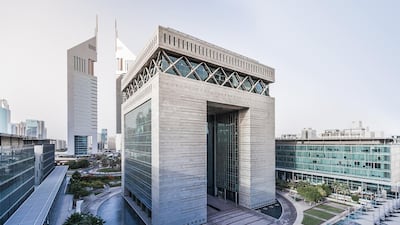Less than 12 months after the Dubai International Financial Centre introduced a new way for its constituent employers to fund and secure employee benefits, the initiative has shown the potential to foster change in the approach to savings via the workplace.
Since February 2020, the DIFC Employee Workplace Savings plan has enabled 1,150 employers to meet mandatory end-of-service benefit liabilities on behalf of nearly 18,000 employees.
A key driver for change was the fact that very few employers were previously funding and setting ring-fenced assets aside for EoSBs. Although employers were accruing a growing liability, they typically used working capital to settle the benefit as it became due. Under the new DIFC Employment Law, it is mandatory for employers to make contributions to their EoSB liabilities and these are held in a trust for members’ benefits through DEWS.
More importantly, DEWS gives employees visibility; they can see their entitlement building up in their name and over time. Further, they can see the real-time value of this benefit online and can control how it is invested across a range of risk-rated, multi-asset funds, including Sharia-compliant options.
In short, DEWS has successfully turned an unfunded liability into a recognisable and secure benefit.
This was a timely initiative given the unexpected arrival of Covid-19. Among the many economic, financial and social knock-on effects of the pandemic, the savings shortfall among expat employees became clearer than ever before.
By highlighting the excessive reliance placed on end-of-service gratuity to meet both short-term and long-term financial needs, it has reinforced the need for flexible and cost-effective solutions such as DEWS to help employees develop a long-term savings mindset to fuel future planning, rather than just continuing to rely on the mandatory EoSG.
At a practical level, the ability to supplement the employer mandatory contributions into DEWS with employee voluntary contributions from payroll has kickstarted a “saving at source” culture that can create discipline and help employees accumulate additional wealth over time.
Expats seem to need this. This community is well-known for believing it won’t be located in the region for too long and, therefore, does not consider it a home for their retirement savings. As a transient workforce, it is often the case that when they move between companies, they use their EoSB payout to settle debts or meet short-term expenses.
Yet an increasing number of expats tend to remain here longer than they might plan to at the outset. In conjunction with the UAE’s recent measures to encourage expats to stay longer and new regulations to enhance transparency and value in financial services, we can expect a change in the attitude towards long-term savings and a stronger culture of financial preparedness. When this happens, it is critical that they can get easy and quick access to savings solutions, such as DEWS, that are suitable for their needs.
The DEWS plan is designed to align with global retirement savings standards and customised to meet the unique requirements of this region.
This makes it an excellent benchmark for the rest of the UAE – possibly even wider – to encourage long-term financial planning for expats driven by consistency and a regulated, best-in-class solution. It fosters financial stability by reducing employers that have an open-ended liability towards EoSBs.
The current success of the DIFC initiative and DEWS can be attributed largely to the simplicity of the plan and the digital enablement that allowed a seamless onboarding of a large population of employers and employees over a short period of time. A user-friendly employer portal, member portal and member app helps enhance engagement and encourages use of DEWS.
As we move forward, this level of efficiency, transparency and digitalisation will be critical. The solution for the wider UAE has to align with the government’s vision for its future as a “digital nation” – one that not only utilises technologies to simplify and enhance, but also innovates and attracts talent.
Reena Vivek is the senior executive officer and managing director of Zurich Workplace Solutions

